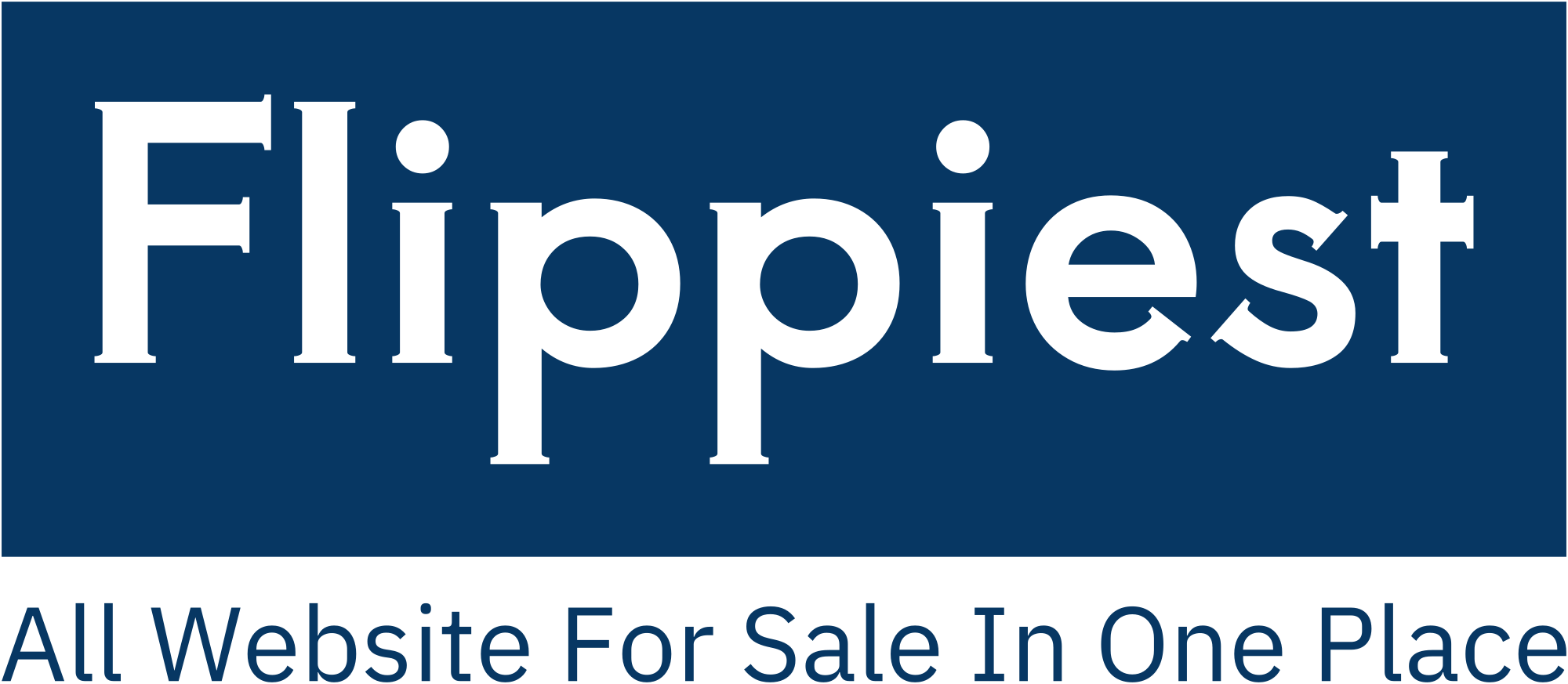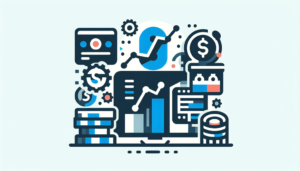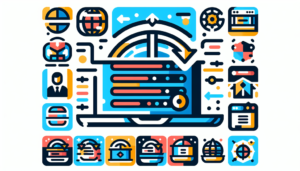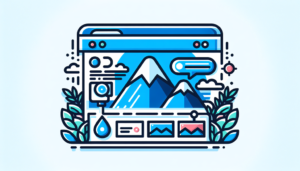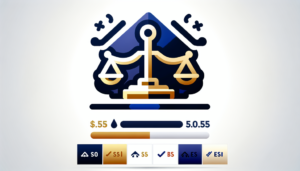When deciding whether to buy a website or build one from scratch, it's essential to understand the pros and cons of each option. This comprehensive guide will explore the critical factors you need to consider for your online venture. We'll look at the benefits and drawbacks, cost implications, and the time commitment involved in both choices. By the end, you'll have a clearer idea of which path suits your needs and goals best. Dive in to discover the best strategy for establishing your online presence.
Understanding the Debate
When considering how to establish an online presence, individuals and businesses often face a critical decision: buying a website or building one from scratch. Each option has its unique advantages and disadvantages, which can significantly impact the long-term success of an online venture. This essay explores the key factors involved in this decision, helping you determine which path may be best suited for your goals.
Advantages of Buying a Website
Immediate Operational Status
-
Time-Saving – Purchasing an existing website allows you to bypass the lengthy process of building a site from the ground up. You can start generating revenue from day one.
-
Established Audience – A pre-existing website often comes with an established audience, providing immediate access to potential customers and traffic.
-
Existing Revenue Stream – Buying a profitable website means you acquire a business that is already generating income, reducing the risk associated with starting a new venture.
Lower Risk of Failure
-
Proven Business Model – An existing website typically has a proven business model, which can lower the risk of failure compared to starting from scratch.
-
Financial Transparency – When purchasing, you can review financial records to assess profitability, helping you make an informed decision.
Ready-Made Infrastructure
-
Existing Marketing Strategies – Many websites come with established marketing strategies, including SEO practices, social media presence, and email lists, which can be beneficial for new owners.
-
Brand Recognition – An established website may already have brand recognition, which can save time and effort in building a brand from the ground up.
Disadvantages of Buying a Website
High Initial Investment
-
Cost – Buying a website can require a significant upfront investment, often starting at $10,000 for a profitable site. This can be a barrier for individuals or small businesses with limited budgets.
-
Ongoing Costs – There may be additional costs associated with maintaining and improving the purchased website, including hosting fees and marketing expenses.
Limited Customization
-
Inflexibility – Existing websites may not meet all your specific needs or preferences, limiting your ability to customize the site to your liking.
-
Inherited Issues – You may inherit problems from the previous owner, such as poor SEO practices or outdated content, which can require additional investment to rectify.
Advantages of Building a Website
Tailored to Your Needs
-
Customization – Building a website from scratch allows for complete customization to fit your specific business needs and branding.
-
Creative Control – You have full control over the design, functionality, and content, ensuring that the website aligns perfectly with your vision.
Lower Initial Cost
-
Cost-Effective – Depending on the complexity, building a website can be less expensive than purchasing an established one, especially if you choose to use DIY website builders.
-
Scalability – You can start small and gradually scale your website as your business grows, allowing for a more manageable investment.
Disadvantages of Building a Website
Time-Consuming
-
Longer Development Time – Building a website from scratch can be time-consuming, often taking weeks or months to complete.
-
Learning Curve – If you lack technical skills, there may be a steep learning curve involved in creating a website, which can delay your launch.
Higher Risk of Failure
-
Uncertain Revenue – New websites often take time to generate traffic and revenue, leading to uncertainty in the initial stages.
-
Trial and Error – Building a website involves a lot of experimentation, and not all strategies will yield successful results, which can lead to wasted time and resources.
Popular Questions About Buying vs. Building a Website
- What are the ongoing costs associated with maintaining a purchased website?
- How can I ensure the website I buy is a good investment?
- What are the best platforms for building a website from scratch?
- How do SEO strategies differ between bought and built websites?
- Can I successfully build a website without technical skills?
Ongoing Costs of Maintaining a Purchased Website
When you purchase a website, understanding the ongoing costs is crucial for evaluating its profitability and sustainability. These costs can vary widely depending on the website's complexity, niche, and the services involved. Here are the primary ongoing expenses you should consider:
Hosting and Domain Renewal
- Web Hosting Fees – Every website requires hosting, which can range from $5 to $500 per month, depending on the hosting provider and the resources needed. Shared hosting is typically cheaper, while dedicated servers or managed WordPress hosting can be more expensive.
- Domain Renewal – Domains need to be renewed annually, usually costing between $10 and $50 per year. Some premium domains may have higher renewal fees.
Maintenance and Updates
-
Content Updates – Regularly updating content is vital for SEO and user engagement. This may involve hiring writers or content creators, which can cost anywhere from $50 to $500 per article, depending on the quality and expertise required.
-
Technical Maintenance – Websites require ongoing technical maintenance, including software updates, security checks, and troubleshooting. Hiring a web developer for these tasks can cost between $50 and $150 per hour.
Marketing and Promotion
-
SEO Services – To maintain or improve search engine rankings, you may need to invest in SEO services. This can range from $500 to $5,000 per month, depending on the scope of work and the competitiveness of your niche.
-
Advertising Costs – If you choose to run paid advertising campaigns (e.g., Google Ads or social media ads), this can add significant costs. Budgets can vary widely, from a few hundred dollars to thousands per month.
Miscellaneous Costs
-
Plugins and Tools – Many websites rely on plugins for additional functionality (e.g., e-commerce, analytics, security). Some plugins are free, while others can cost between $50 and $500 annually.
-
Legal and Compliance Fees – Depending on your business, you may need to invest in legal services for compliance with regulations (e.g., GDPR, CCPA), which can incur additional costs.
In summary, while purchasing a website can provide immediate operational benefits, it is essential to factor in these ongoing costs to ensure that the investment remains profitable over time.
Ensuring a Good Investment When Buying a Website
When considering the purchase of a website, ensuring that it is a sound investment requires careful evaluation and due diligence. Here are several key steps to help you assess a potential website purchase:
Evaluate Financial Performance
-
Review Financial Records – Request access to the website's financial records, including income statements, profit and loss statements, and tax returns. Look for consistent revenue over time and analyze trends to understand the site's financial health.
-
Assess Traffic Data – Use tools like Google Analytics to review traffic data. Look for organic traffic growth, user engagement metrics, and traffic sources to gauge the website's popularity and reliability.
Analyze the Niche and Market
-
Market Potential – Research the niche to determine its growth potential. Consider factors such as competition, target audience, and industry trends. A niche with high demand and low competition is often a more attractive investment.
-
Competitor Analysis – Analyze competitors in the same niche to understand their strengths and weaknesses. This can provide insights into potential challenges and opportunities for the purchased website.
Check for SEO Health
-
SEO Audit – Conduct an SEO audit to evaluate the website's current search engine optimization status. Look for issues such as poor keyword rankings, broken links, and outdated content that may require attention.
-
Backlink Profile – Assess the website's backlink profile using tools like Ahrefs or Moz. A strong backlink profile can indicate authority and improve search rankings, while a poor profile may require significant effort to improve.
Understand Operational Needs
-
Content Quality – Review the quality of existing content. High-quality, engaging content is essential for attracting and retaining visitors. If the content is lacking, you may need to invest in content creation after the purchase.
-
Technical Infrastructure – Evaluate the website's technical infrastructure, including its platform, plugins, and hosting. Ensure that it is built on a reliable platform that can accommodate future growth and changes.
Negotiate Terms and Conditions
-
Purchase Agreement – Work with a legal professional to draft a purchase agreement that outlines the terms and conditions of the sale. This should include details about the transfer of ownership, any warranties, and post-sale support.
-
Contingencies – Include contingencies in the agreement that allow for a refund or renegotiation if certain conditions are not met after the purchase, such as undisclosed financial issues or traffic drops.
By following these steps, you can increase your chances of making a successful investment in a website that aligns with your business goals.
Best Platforms for Building a Website from Scratch
When deciding to build a website from scratch, selecting the right platform is crucial for ensuring ease of use, functionality, and scalability. Here are some of the best platforms available for building a website:
WordPress
-
Overview – WordPress is the most popular content management system (CMS) globally, powering over 40% of all websites. It offers a user-friendly interface, extensive customization options, and a vast library of themes and plugins.
-
Pros – Highly customizable, strong community support, SEO-friendly, and a wide range of plugins for added functionality.
-
Cons – Requires some technical knowledge for advanced customization, and managing security and updates can be time-consuming.
-
Overview – Wix is a website builder that allows users to create stunning websites using a drag-and-drop interface. It is ideal for beginners who want to build a site without coding knowledge.
-
Pros – User-friendly, visually appealing templates, and built-in SEO tools.
-
Cons – Limited flexibility compared to WordPress, and once a template is chosen, it cannot be changed without rebuilding the site.
-
Overview – Squarespace is a popular website builder known for its elegant design templates and ease of use. It is particularly favored by creatives and small businesses.
-
Pros – Beautiful templates, all-in-one solution (hosting, domain, and design), and strong customer support.
-
Cons – Less flexibility for customization compared to WordPress, and can be more expensive.
-
Overview – Shopify is a leading e-commerce platform designed for online stores. It provides everything needed to set up and manage an online shop.
-
Pros – Excellent e-commerce features, secure payment processing, and easy inventory management.
-
Cons – Monthly fees can add up, and customization options may be limited compared to self-hosted platforms.
-
Overview – Weebly is another user-friendly website builder that offers drag-and-drop functionality. It is suitable for small businesses and personal websites.
-
Pros – Easy to use, affordable pricing, and built-in e-commerce capabilities.
-
Cons – Limited design flexibility and fewer features compared to more robust platforms like WordPress.
By carefully considering these platforms, you can choose the one that best aligns with your goals and technical expertise when building your website from scratch.
SEO Strategies for Bought vs. Built Websites
Search Engine Optimization (SEO) is essential for driving organic traffic to any website, whether it is bought or built from scratch. However, the strategies and considerations may differ between the two. Here’s a breakdown of how SEO strategies can vary:
SEO for Bought Websites
-
Audit Existing SEO – When purchasing a website, conduct a thorough SEO audit to assess its current performance. Identify strengths and weaknesses in keyword rankings, backlinks, and on-page SEO elements.
-
Preserve Existing Rankings – If the website has established rankings for specific keywords, focus on maintaining these rankings while gradually improving content and optimizing for additional keywords.
-
Analyze Backlink Profile – Evaluate the quality and relevance of the website's existing backlinks. Disavow any toxic links that may harm SEO performance and work on building new high-quality backlinks.
- Content Refresh – Update and improve existing content to ensure it aligns with current SEO best practices. This may involve optimizing for new keywords, enhancing readability, and updating information.
SEO for Built Websites
-
Keyword Research – Start with comprehensive keyword research to identify target keywords that align with your business goals. Use tools like Google Keyword Planner or SEMrush to find relevant keywords with good search volume.
-
On-Page Optimization – Focus on optimizing on-page elements such as title tags, meta descriptions, header tags, and image alt text to improve search engine visibility.
-
Content Strategy – Develop a content strategy that includes regular blog posts, articles, and other forms of content that provide value to your audience. This can help establish authority and improve rankings over time.
- Technical SEO – Ensure that the website is technically sound, with fast loading times, mobile responsiveness, and proper URL structure. Use tools like Google Search Console to monitor performance and fix any technical issues.
In conclusion, while both bought and built websites require effective SEO strategies, the focus may differ based on the existing state of the website. Understanding these nuances can help you optimize your website for better visibility and traffic.
Building a Website Without Technical Skills
Building a website without technical skills is entirely feasible, thanks to user-friendly website builders and platforms that cater to non-technical users. Here are some strategies and tools to help you create a website without needing extensive technical knowledge:
Choose the Right Platform
-
Website Builders – Opt for website builders like Wix, Squarespace, or Weebly that offer drag-and-drop functionality. These platforms allow you to create visually appealing websites without writing any code.
-
Content Management Systems (CMS) – If you're comfortable with a bit of learning, consider using WordPress. It has a user-friendly interface and extensive resources available for beginners.
Utilize Templates
-
Pre-Designed Templates – Most website builders provide a library of pre-designed templates that you can customize to suit your brand. This saves time and effort in designing a site from scratch.
-
Customization Options – Use the customization features offered by these platforms to modify colors, fonts, and layouts to match your brand identity.
Leverage Learning Resources
-
Online Tutorials – Take advantage of online tutorials and resources available on platforms like YouTube, Udemy, or the website builder's own support pages. These resources can guide you through the process of building your site step by step.
-
Community Forums – Join community forums or user groups related to your chosen platform. Engaging with others can provide valuable insights and solutions to common challenges.
Focus on Content
-
Content Creation – Concentrate on creating high-quality content that resonates with your target audience. Use tools like Grammarly for writing assistance and Canva for designing graphics.
-
SEO Basics – Familiarize yourself with basic SEO principles, such as keyword usage and meta descriptions, to improve your website's visibility in search engines.
By following these strategies, you can successfully build a website without extensive technical skills, allowing you to focus on your business and its growth.
Conclusion
The decision to buy or build a website is multifaceted and depends on various factors, including budget, time, and business goals. Each option has its advantages and disadvantages, and understanding these can help you make an informed choice. Whether you choose to buy an established site or build one from scratch, being aware of the ongoing costs, SEO strategies, and available resources will ultimately contribute to your success in the online world.
